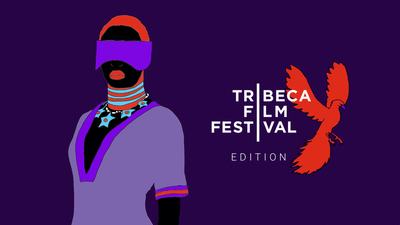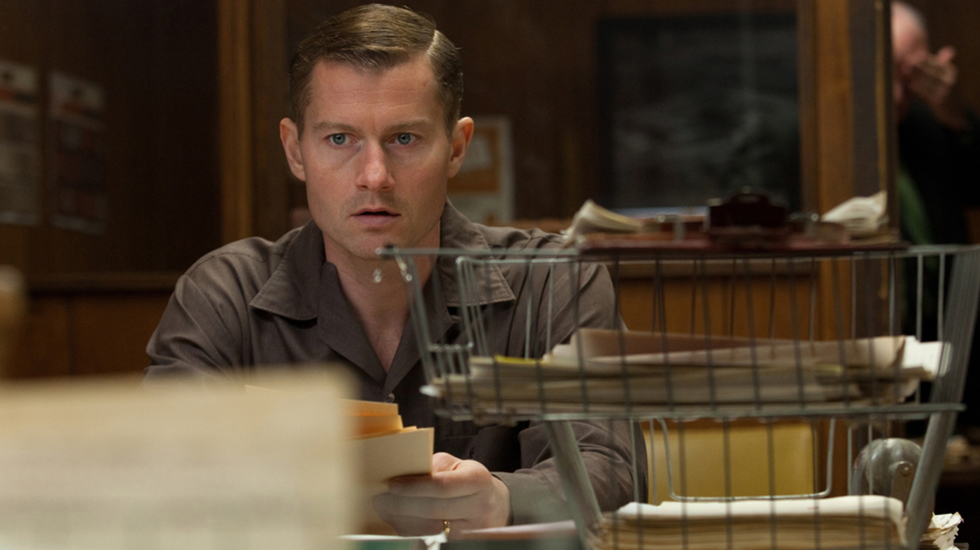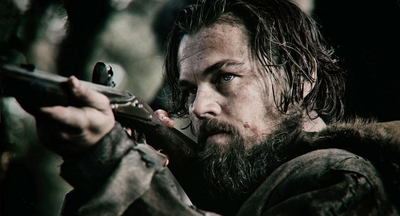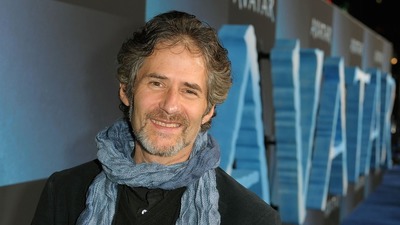
BY KAREN KEMMERLE |
Can We Talk About James Badge Dale in ‘Parkland’?
This week, we’re highlighting some of the year’s most underrated performances that deserve wider recognition. Today we celebrate James Badge Dale’s compassionate turn as Robert Oswald in ‘Parkland.’

Ever since his stellar performance as Robert Leckie in the HBO mini-series The Pacific, James Badge Dale has been one of the Hollywood’s most sought after character actors. Playing stand-out supporting roles in films like Shame, Flight, Iron Man 3, World War Z and The Long Ranger, James Badge Dale should be more of a household name.
While Parkland wasn’t a big box office or critical hit, it was an interesting little movie. The film dramatizes the days surrounding the assassination of John F. Kennedy Jr. through the points of view of a handful of people who were affected by the event in Dallas. From the devastated secret service agents to the doctors in the hospital to journalists covering the shooting, everyone has a story to tell.
 Though the film is far from perfect and more than a little scenery chewing goes on (I’m looking at you, Zefron), James Badge Dale’s performance stands out. Continuing his trend of being the best thing about every film he’s in, Dale takes on the interesting role of Robert Oswald, the brother of the notorious Lee Harvey Oswald, who must deal with the fact that a man sharing his own flesh and blood was involved in the murder of the 35th president.
Though the film is far from perfect and more than a little scenery chewing goes on (I’m looking at you, Zefron), James Badge Dale’s performance stands out. Continuing his trend of being the best thing about every film he’s in, Dale takes on the interesting role of Robert Oswald, the brother of the notorious Lee Harvey Oswald, who must deal with the fact that a man sharing his own flesh and blood was involved in the murder of the 35th president.
Robert Oswald is an enigmatic figure, even though he wrote about his relationship with brother in a little-read, little-publicized book back in 1967. Dale plays him with incredible empathy as a man who also is a victim of his brother’s crime. When we first meet Robert Oswald, he is in his office listening to the news of the Kennedy assassination. Like the rest of the world, he sits in stunned silence. When the report comes in that Lee Harvey Oswald has been arrested, Dale conveys Robert’s devastation just through his facial expression. As he tries to control his shock, Robert quietly gathers his things to leave—moving slowly and deliberately as he exits the room. He casts his eyes down to the ground and ignores his co-workers as he leaves, never making eye contact. In this way, Dale makes us feel his character’s immediate isolation.
As Robert quietly gathers his things to leave the room, he casts his eyes down to the ground and ignores his co-workers. In this way, Dale makes us feel his character’s immediate isolation.
Dale’s incredible performance as Robert is even more striking as events unfold. Robert sits in the police station, his slight frame visibly burdened by the guilt and worry. Waiting to speak to his brother, Robert is stoic, but ashamed, fighting to practice the unconditional love he has been taught to give to his family. Always maintaining an air of quiet dignity, Robert, never tries to distance himself from his brother. He is disgusted by Lee’s actions, but feels an enormous sense of responsibility.
Capitalizing on Robert’s passive silence, Dale expresses thousands of “what ifs” with his eyes and body language in this sequence. At one point he wrings his hands so that the audience almost hears him asking, “what if I could have prevented this? What if I had listened more?” It’s a heartbreaking sequence.
As Lee’s mother (the great Jackie Weaver) deludes herself with the thought that her son is a secret agent acting on orders from the government, Robert remains patient with her. As she spouts off nonsense about Lee’s service for his country, Dale’s Robert says to her, “Your son, my brother, has apparently killed the most important man in the world. If that's true, he is going to die for what he has done." While this statement falls on deaf ears, though it Dale establishes Robert Oswald as the moral compass of the film—he is a man trying to hide his disgust while maintaining his duty to his family.
Dale masterfully keeps Robert Oswald’s growing frustrations contained as he deals with his mother’s and brother’s mental instability. Despite everything, he tries to get Lee a lawyer. Is it out of brotherly love or obligation? As Robert waits to speak to his brother, a police officer approaches him and advises him to change his name and leave Dallas. Without an ounce of rage or indignation, Robert listens patiently. Dale plays him as shaken and ashamed of what his brother has done, but unbroken.
Once Lee Harvey Oswald himself is assassinated, Dale has Robert accept the news with a complex of emotions running across his face—flickers of sadness, acceptance, disbelief and relief all appear. In one of the most unexpectedly wrenching scenes of the movie, Robert must ask the journalists covering his brother’s funeral to serve as the pallbearers.
Because of Dale’s understated and intelligent performance, the audience knows that Robert Oswald, a good man who will forever be linked to his brother’s notoriety, will pick up the pieces and move on.
Dale plays the scene beautifully. Robert does not beg. He accepts the fact that he needs help because he wants his brother to be buried without embarrassment. It is a difficult scene to watch, but necessary. Because of Dale’s understated and intelligent performance, the audience knows that Robert Oswald, a good man who will forever be linked to his brother’s notoriety, will pick up the pieces and move on.
James Badge Dale is an actor who should be a leading man, but until that happens, we are happy to watch him in rich character work and scene stealing supporting roles. Check out Parkland, and you will see what I mean.

